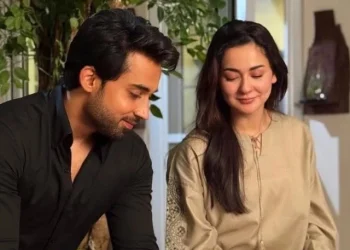Colleen Hoover’s It Ends With Us has certainly made a splash in the literary world, but not all ripples have been kind. While Hoover’s novel claims to shed light on the grim realities of domestic violence, many readers have found it lacking in depth and sensitivity. The book’s portrayal of abuse has been described as melodramatic, with many slamming its marketing as a romance.
Fears of amplifying the wrong message about DV have only grown in certain quarters now that the Blake Lively-starrer multimillion film adaptation has hit theatres. From the Gossip Girl starlet using the film to launch her haircare brand to clips of her telling fans to don their florals for the screening have done little to quell those fears.
For those who It Ends With Us a poor take on the intricacies of domestic violence, there are several alternative reads that tackle the grave issue with more nuance and grace. So, if you’re looking to switch gears and dive into fictional worlds that handle domestic violence with the sophistication it deserves, here are four stellar recommendations.
‘Eleanor Oliphant Is Completely Fine’

At first glance, Eleanor Oliphant might seem like an oddball protagonist – a socially awkward woman with a penchant for frozen pizza and vodka-fueled weekends. But beneath her quirky exterior lies a story of profound trauma and the long journey toward healing.
Gail Honeyman’s debut novel doesn’t directly focus on domestic violence, but it masterfully explores the lasting effects of childhood abuse and neglect. Eleanor’s meticulously structured life and struggle with social interactions hint at a deeper pain, gradually revealed through her weekly phone calls with the ominous “Mummy.”
As Eleanor’s carefully constructed world begins to shift with the introduction of Raymond, the “bumbling and deeply unhygienic IT guy” from her office, readers are taken on a journey of self-discovery and healing. The novel delves into how childhood trauma can shape an individual’s entire adult life, affecting their ability to form healthy relationships and navigate everyday situations.
What sets Eleanor Oliphant Is Completely Fine apart is its balance of more serious themes with humour and hope. Eleanor’s journey showcases the power of human connection in overcoming the isolation that often accompanies a history of abuse. It’s a tale that does justice to the complexities of trauma recovery, offering a more nuanced view of its long-term effects than many other popular novels.
‘Normal People’

For those seeking a more subtle exploration of abusive dynamics within relationships, Sally Rooney’s Normal People offers a masterclass in psychological complexity. The novel follows Connell and Marianne from their school days in a small Irish town through their years at Trinity College in Dublin, chronicling their magnetic yet often troubled relationship.
While Normal People doesn’t depict physical domestic violence, it delves deep into themes of emotional manipulation, power imbalances, and psychological control. Rooney’s keen eye for the nuances of human interaction reveals how abuse can be insidious, often intertwined with genuine affection and dependency.
The story explores how past experiences of abuse (particularly Marianne’s family background) can make someone more susceptible to unhealthy relationship patterns. Through Connell and Marianne’s evolving dynamic, Rooney illustrates how societal expectations, class differences, and personal insecurities can contribute to emotionally abusive situations, even in relationships that aren’t overtly violent.
Normal People encourages readers to think critically about the nature of healthy relationships and the various forms that abuse can take. Its nuanced portrayal of young love, trauma, and self-discovery has resonated with readers worldwide, spawning a critically acclaimed television adaptation.









 American Dollar Exchange Rate
American Dollar Exchange Rate